When it comes to understanding my main themes of nutrition, fitness, and focus, I find it helpful to zoom out and try to first understand what drives our habits, namely our thoughts, desires, and behaviors. Why do we want the things we want? Why do we do the things we do? We say we want to be healthy, but we overeat processed food. We say we want to keep our house clean, but we can’t seem to keep things in the right place. How are some people seemingly so motivated, happy, and focused while others struggle to even keep their life in order on a daily basis?
These are the best books I’ve found so far on why we think and behave the way we do. Other than Daniel Kahneman’s fabulous book at the end (which is worth it if you have time), they’re fairly quick reads with crisp writing, understandable science, and illustrative stories. Here’s a quick list with a bit more detail below. Enjoy and contact me anytime to share further reading you find interesting!
- Sapiens – Yuval Harari
- Atomic Habits – James Clear
- Digital Minimalism – Cal Newport
- The Hungry Brain – Stephan Guyenet
- Endure – Alex Hutchinson
- Mindset – Carol Dweck
- Hooked – Nir Eyal
- Thinking, Fast and Slow – Daniel Kahneman
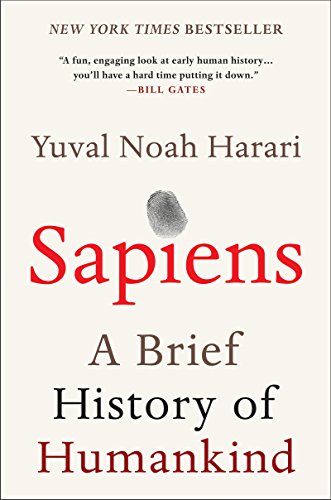
Sapiens – Yuval Noah Harari
The Crux: A dazzling, fast paced look into the history of our species, taking us from the Stone Age through the cognitive, agricultural, and scientific revolutions.
The Takeaway: This is a book that transports you outside of culture and to take an objective look at how we’ve evolved and the implications of our modern environment on our genes. It makes you feel as I’d imagine a fish would feel if you took him out of a tank at the aquarium and explained his whole situation to him. We’re truly living with Stone Age hardware and trying to operate as best we can in our current environment. Examples abound of how our evolutionary mismatch plays out in the modern world.
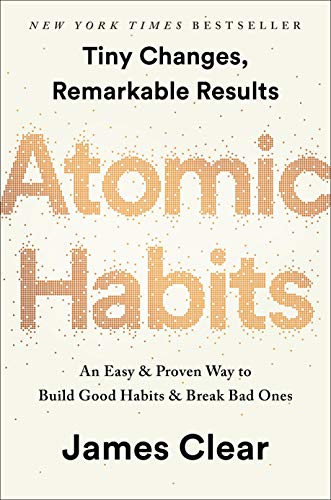
Atomic Habits – James Clear
The Crux: Small habits executed consistently over time add up to remarkable results.
The Takeaway: Your habits don’t lead to who you become. Instead you actually become your habits over time. In order to make habits stick, you need to change your identity. You’re not ‘someone who’s training for a 10K’, instead you’re ‘a runner’. Combine this identity-focused habit change with a focus on James Clear’s 4 Laws of Behavior Change: Make it Obvious, Make it Attractive, Make it Easy, Make it Satisfying. This is a powerful operating manual for how to implement real change in your life over time.
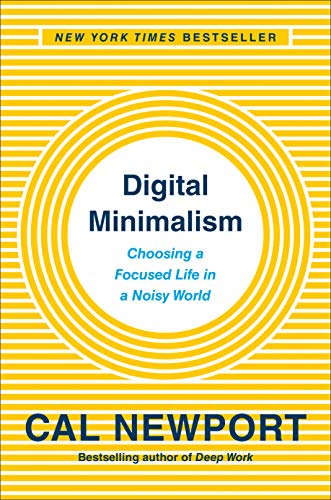
Digital Minimalism – Cal Newport
The Crux: We’re the unwitting targets of profit seeking companies who are taking advantage of deep seated evolutionary instincts to maximize the time and attention we spend (waste?) on their products and services.
The Takeaway: Newport drives home the message and understanding of how we’re getting taken advantage of and then offers up actionable philosophies and tactics to reduce the amount of digital distraction in your life and reclaim lost time. His system focuses first on employing a 30 day digital de-clutter in which you can assess your digital life and substitute real world activities and leisure for all of the newly found time.
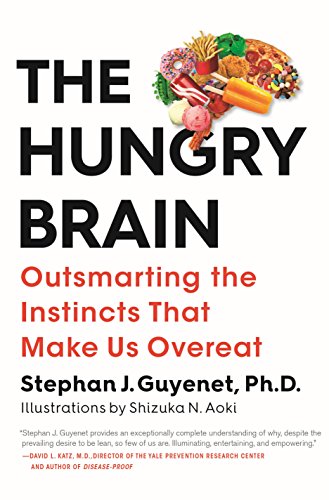
The Hungry Brain – Stephan Guyenet
The Crux: When we know with certainty that overeating processed food is bad for us, why has obesity become an epidemic? Food companies are tapping into evolution-based instincts and reward systems in the brain that cause us to rampantly overeat and disrupt our ability to regulate bodyfat
The Takeaway: Guyenet shows tremendous precision explaining the neuroscience and research behind our instincts to overeat. We learn that from a neurochemical standpoint, we’re playing against a stacked deck when trying to avoid overeating processed food. Not only does this type of food tap heavily into our instinctual desire for calorie dense food, it also has the insidious effect of breaking down the system that regulates our bodyweight over time. The practical advice comes in the form of sticking to food that’s high in ‘satiety’, or promoting fullness. These are foods that are high in volume compared to calorie density (like vegetables), high in protein, and high in fiber.
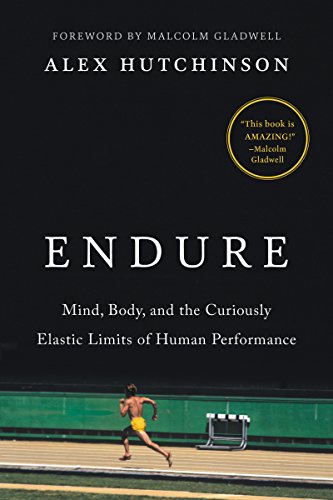
Endure – Alex Hutchinson
The Crux: Alex Hutchinson is a journalist, a Phd, and a former high level distance runner; the ideal tour guide to take us through a riveting account of endurance research and how the mind can play a surprisingly large role in our limits to push ourselves physically.
The Takeaways: There are practical applications for mindset that will allow you to perform better and get the most out of your fitness routine. This includes visualization, strategies from positive psychology, and even ways to trick yourself into thinking you’re not working as hard as you actually are.
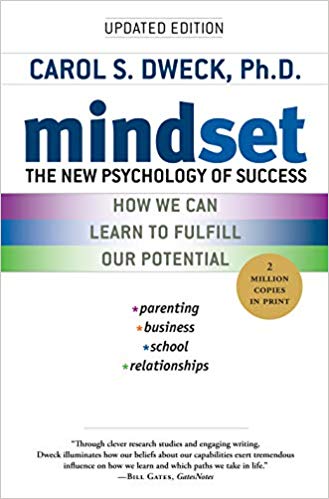
Mindset – Carol Dweck
The Crux: A groundbreaking examination of how we either fall into the category of having a fixed mindset or a growth mindset. With a fixed mindset, someone thinks intelligence is static and that challenges and obstacles preset egregious blows to the ego if they aren’t overcome. With a growth mindset, someone believes intelligence is learned over time and that challenges are to be embraced and setbacks are just a bump along the road to success
The Takeaways: Dweck’s research is fascinating and supports the idea that a growth mindset can be learned over time. By using strategies like embracing learning as a skill as well as creating a compelling belief of who you can be over time, it’s possible to develop the growth mindset.
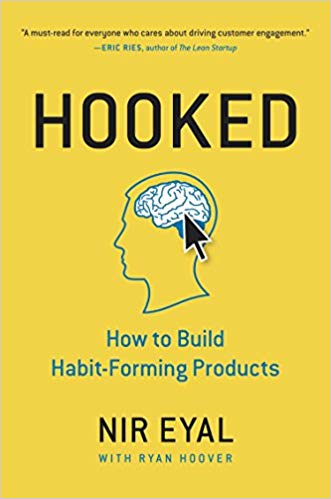
Hooked – Nir Eyal
The Crux: A fascinating look into how consumer facing technology products create behaviors and potential addictions in users as told by Nir Eyal, a technologist and professor who’s applied these very techniques to create successful products.
The Takeaways: Using keen insight from BJ Fogg’s Persuasion Lab and his own experience, Nir breaks down the four keys to getting someone hooked on technology: Trigger > Action > Reward > Investment. The powerful trio of books for understanding your relationship with technology and building habits to get what you want from it and nothing else is Hooked, Atomic Habits, and Digital Minimalism.
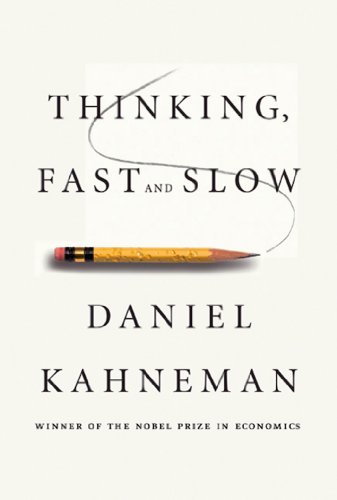
Thinking, Fast and Slow – Daniel Kahneman
The Crux: When it comes to judgement and choice, humans operate with a fast thinking system that’s instinctual (system 1) and a more deliberate, logical system (system 2). Though we cling to the notion that we’re ‘rational’ and feel more comfortable with system 2, we end up using system 1 far more than we think since it requires less brain power.
The Takeaway: In terms of decisions we see over and over again in life such as what to eat or how to exercise, system 1 will typically jump in and take the reigns. Repeating these decisions requires less brain power, which is one reason bad habits are so notoriously difficult to break. This information when combined with James Clear’s conclusions from Atomic Habits can vastly improve our ‘system 1’ decisions over time.
To get more great book and resource recommendations on health, focus, and the outdoors, sign up for my newsletter below. Just one email every two weeks with high quality content and no spam ever
